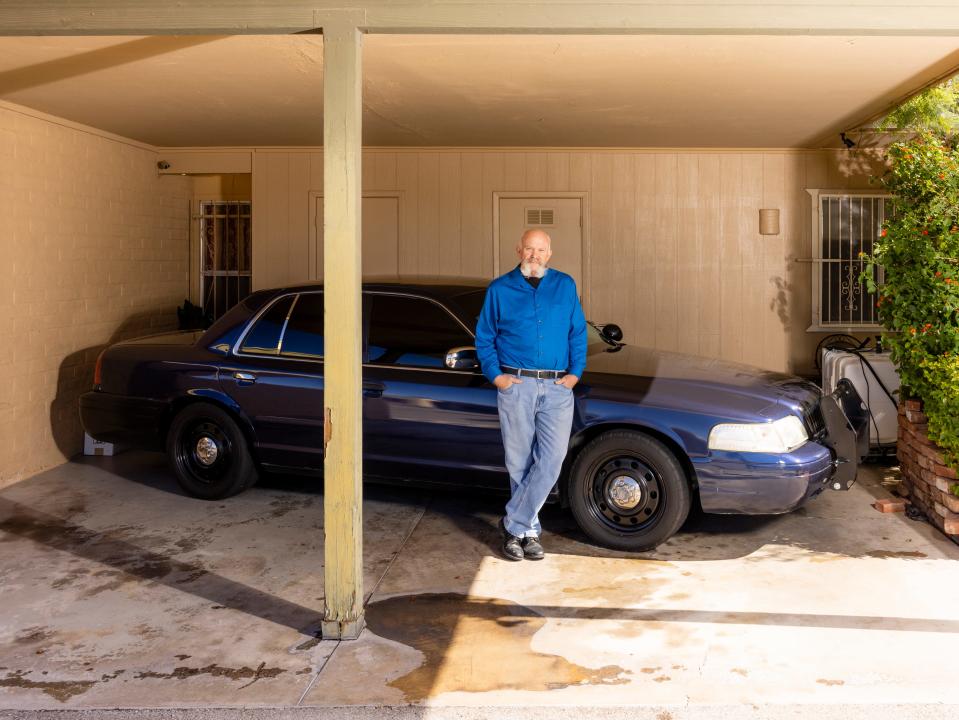Trees planted, lives protected, drug costs lowered, corrupt officials exposed. Our impact in 2022.
Journalism makes a difference in people's lives every day.
Sometimes, change is small but meaningful.
A neighborhood in Petersburg, Virginia, got money for new trees after journalists showed it had higher temperatures due to being part of a heat island, stretches of concrete that bake in the sun and retain heat.
Sometimes, the impact is staggering.
The Delaware News Journal revealed that prosecutors and investigators withheld evidence that could have exonerated a man serving time for murder. The next day, prosecutors dropped all charges and released the man in the middle of the night.
Today, we share more stories of how journalism across the USA TODAY Network has changed laws and lives. Your subscriptions to local news and USA TODAY make this possible.
We stood up for consumers
The Fort Collins Coloradoan uncovered how UCHealth, Colorado's largest health care provider, marked up billing for the hormone therapy drug Zoladex by more than 1,000% from the $783 it pays per injection. Journalists reported how UCHealth's per-shot billing increased by 306% in four years, topping out at more than $9,000 billed to one cancer survivor for her monthly shot. UCHealth apologized, said the drug was an outlier and reduced the cost of the cancer drug after acknowledging it had been overcharging patients and insurance companies for years. Patients now save thousands of dollars each month for the drug.
USA TODAY exposed the problems with predatory lending, which offers quick, small-dollar loans with triple-digit interest rates to consumers who are unable to get money from mainstream banks or credit unions. After telling the story of James Hollis, who had car loans at 155% and 202%, readers around the country offered to pay off his debt. "I feel a great sense of relief," Hollis said. "I didn't know how I was going to make it. I was strapped."

We held the powerful accountable
The Louisville Courier-Journal disclosed how an Eastern Kentucky prosecutor was helping a defendant extricate herself from legal trouble in exchange for nude selfies she would send him online. Commonwealth's Attorney Ronnie Goldy was suspended from practice.
USA TODAY revealed that California State University Chancellor Joseph Castro mishandled six years of sexual harassment, bullying and retaliation complaints against then-Fresno State Vice President of Student Affairs Frank Lamas. Castro resigned as CSU chancellor on Feb. 17, two weeks after USA TODAY's investigation into his time as president of Fresno State sparked outrage and pressure from lawmakers, students, faculty and the public. The CSU Board of Trustees voted unanimously to adopt a series of reforms.
Two executives of JEA, the public utility in Jacksonville, Florida, were indicted on charges of conspiracy and wire fraud following four years of investigation by the Florida Times-Union. Journalists revealed secretive attempts to sell JEA and details of a bonus scheme that would have resulted in top executives getting millions of dollars when it sold.
In the wake of a mass shooting at an Indianapolis FedEx facility, the Indianapolis Star found that even as gun violence has increased, police and prosecutors failed to file more than 100 red flag cases, some of which could have prevented at least 14 deaths and eight injuries. Red flag laws allow courts to remove firearms from people who may be dangerous to themselves and others. Marion County now requires police to submit red flag cases directly to the court when guns are seized under the law.
We protected the vulnerable
USA TODAY exposed failures across the sport of competitive cheerleading, including how the governing body, the U.S. All Star Federation, delayed investigations and failed to prevent those accused or convicted of crimes from working in member gyms. USASF has since hired an outside firm to strengthen its policies and enforcement.
The Milwaukee Journal Sentinel prompted city leaders to move to bring back a rental inspection program and start a public education campaign around electrical safety. The actions were in response to the Journal Sentinel's investigation that found electrical fires ravage homes in the city's poorest ZIP code at five times the rate of the rest of Milwaukee.
The bureaucracy that someone experiencing housing insecurity in New Jersey must clear to get a photo ID, birth certificate or Social Security card can delay the very help needed to pull the individuals out of homelessness, including rental assistance, public housing and welfare. After NorthJersey.com wrote about the issues facing homeless people trying to get identification, legislation was passed in the state General Assembly to ease the process and awaits a full vote in the Senate.
An Arizona Republic investigation revealed how the Arizona State Board of Massage Therapy gave second chances to massage therapists who had fondled or sexually abused their clients, and how there was little that customers could do to protect themselves. Arizona's governor signed a bill into law in 2022 requiring massage therapists go through more thorough background checks before getting licensed.
And we'll continue to do exactly this – for you
As subscribers and readers, you support journalism that makes a difference.
We thank you. You're making a difference, too.
Subscribe to USA TODAY here.
Subscribe to any local USA TODAY Network newspaper here.
Nicole Carroll is the editor-in-chief of USA TODAY. The Backstory offers insights into our biggest stories of the week. If you'd like to get The Backstory in your inbox, sign up here. Reach Carroll at EIC@usatoday.com or follow her on Twitter at twitter.com/nicole_carroll.
This article originally appeared on USA TODAY: USA TODAY Network journalism had an impact in 2022. Will again in 2023

